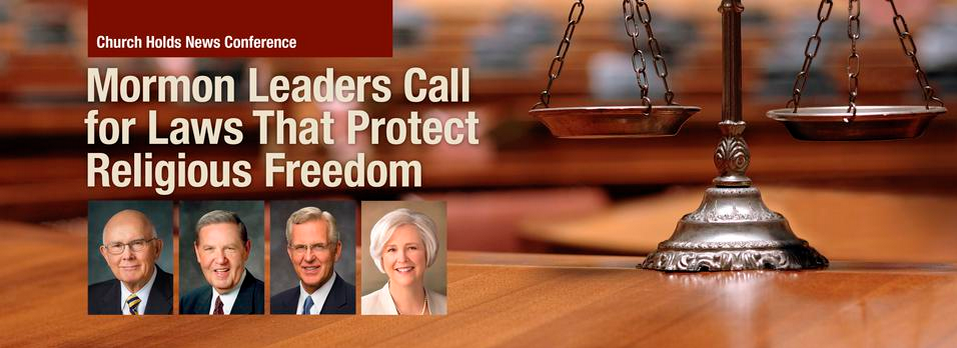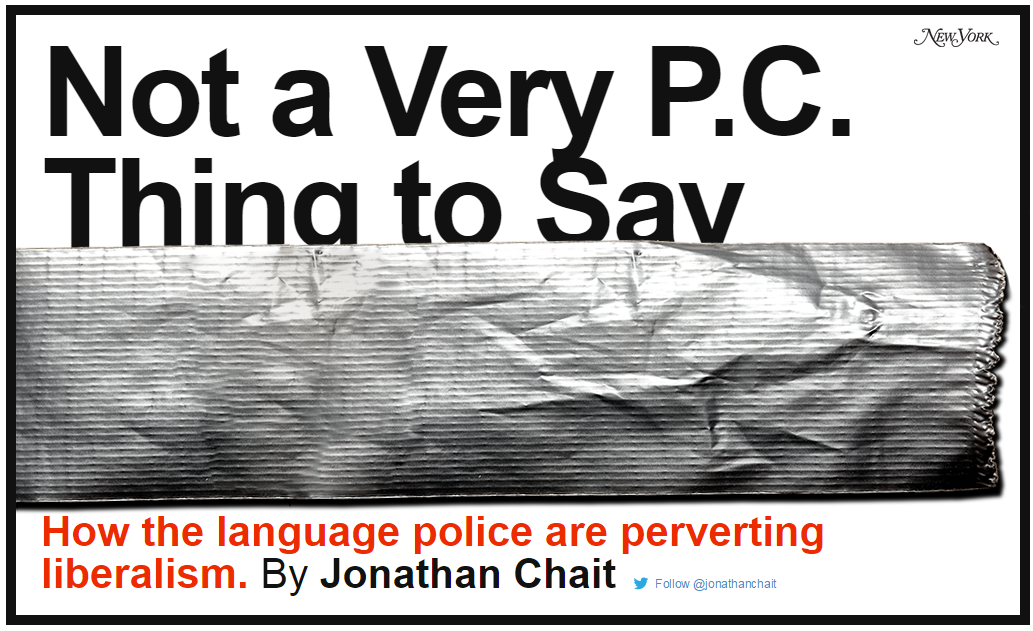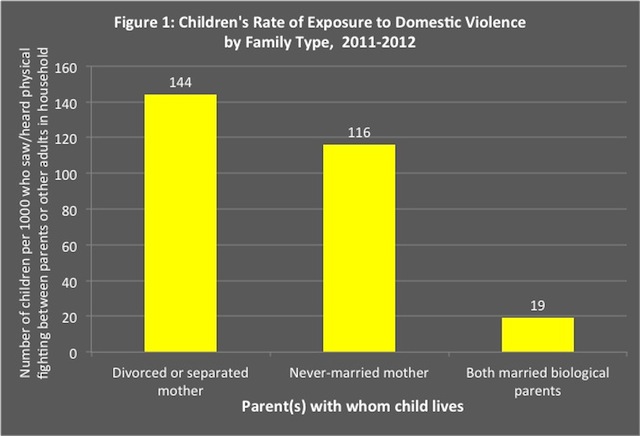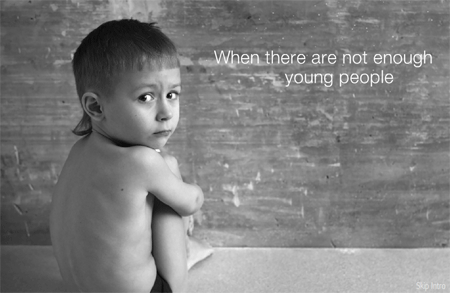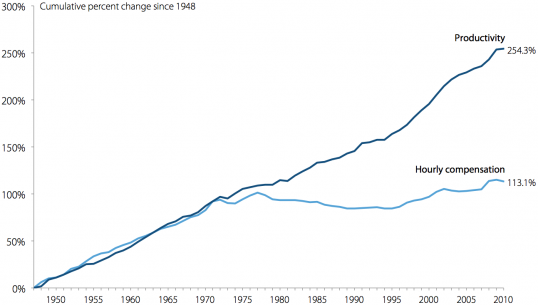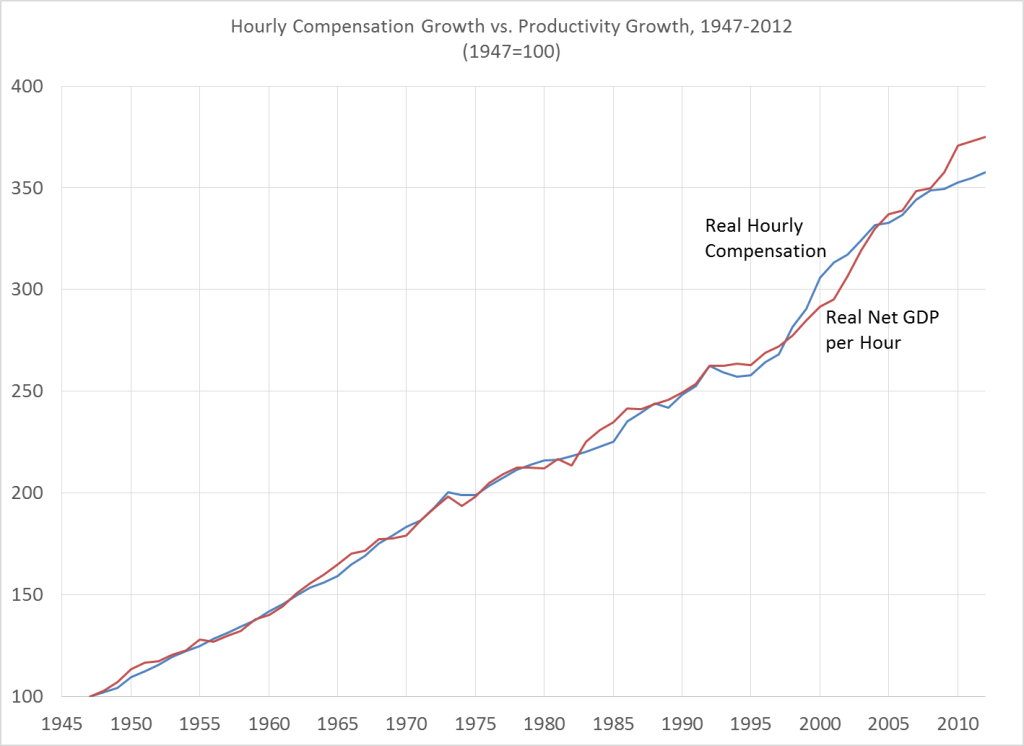Last week the Church of Jesus Christ of Latter-day Saints held a rare public press conference. The topic was gay rights, and Jonathan Rauch described the main idea this way:
[Mormon leaders] made a startling offer to gay and lesbian America: If you will support reasonable religious-liberty exemptions for us, we will support expanded civil-rights protections for you.
So, what should we make of this? For his part, Rauch (who is gay) advocates giving the Church the benefit of the doubt and viewing the offer as a genuine olive branch. However, he concedes that “it could be a trap.” Brooke P. Hunter is not nearly as conciliatory in her piece: How the Mormons Punked the Press. She described the press conference as “mostly about defending Mormons’ right to discriminate.” She said “the new Mormon position is like that candy with a razor blade inside” and added
Today’s press conference took place in a twilight zone where parents are in danger of being jailed for teaching their kids about Jesus, and where believers can’t “share their views openly in the public square.” Oh, please. Show me the Mormons who have been jailed for sharing their views. There are none. And if you can point to one instance of the government preventing good Mormons from practicing their religion in their homes, we’ll eat our hat.
Let me make two observations. First, although Hunter doesn’t seem aware of this fact, her position constitutes a drastic reduction in the scope of religious liberty. First, because she envisions no protection for religious liberty outside of the strictly private sphere. Second, because she is contemptuous of the idea of religious liberty as religious. For instance, she decries Mormons for wanting “special privileges and special rights for churches and for religious people.” Well yes, in order to be religious liberty it has to be liberty specifically for (i.e. specially for) religion and religious considerations.[ref]Atheist and agnostic principles can be included as well by broadening the scope to include freedom of conscience.[/ref] Whatever Hunter has in mind when she talks about religious liberty, it seems to have very little do to with our historic appreciation for the special role religion has to play in the public sphere. This attitude, especially as it seems to be both widespread and innocent of any awareness of its own novel and revolutionary character, goes a long way towards vindicating the fears of religious people.
Second, I think the most logical way to take the Church’s position is the straightforward one. I do not think the bargain is merely political or expedient. I think, and this is born out by other changes in Church policy and teaching I outlined here, that the gay rights debate has forced Mormons (and the religious community as a whole) to do a better job of separating between principled religious doctrines of sexual morality and social convention. It is possible, and for a Christian it is necessary, to commit oneself to loving gay people (and bisexual, and transgender, etc.) in a way that affirms the unique dignity of every human being as in the image of God and also the religious principles that Christians believe lead to human flourishing. Does this break down to the old “hate the sin, love the sinner” trope? In short: yes. And it’s a distinction the world may find curious but that is at the heart of the Christian faith.
In short, I think Mormonism has come to an awareness that fighting against discrimination of the LGBT community is more than politically expedient: it is the right thing to do. The LGBT community should be protected from discrimination in housing, employment, and so on. I do not believe, and so far neither does the Church, that this extends to same-sex marriage, however, which is seen not as equal access to a common institution but as the redefinition of an institution. Even if you think that last bit makes no sense, and I know that many people do, my general message is just that I think Mormons (and a lot of the religious community) have been humbled by the past couple of decades and have come to a deeper understanding of how to live as Christians. That, I believe, is also what led to last week’s press conference.
